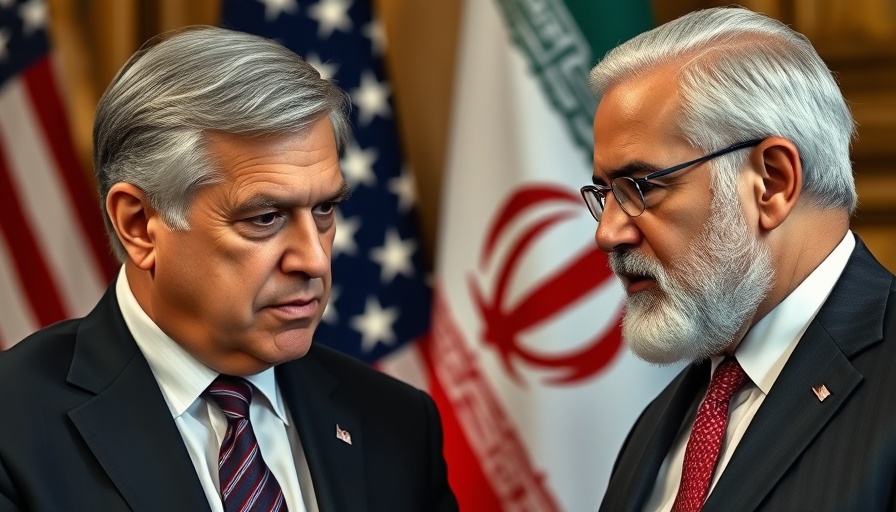
Understanding the Stakes: Trump's Talks with Iran
The recent U.S.-Iran nuclear negotiations have reignited interest and hope among policymakers and taxpayers alike. During discussions led by former President Donald Trump's administration, optimism emerged between the two countries—an indication that Trump’s approach to foreign policy might yield different results than President Joe Biden's efforts in the past. This shift highlights the importance of examining strategic negotiations in international relations, particularly regarding issues that could impact taxpayer budgets via defense spending and international diplomacy.
Economic Vulnerability: A Factor in Negotiations
Today, Iran finds itself in a fragile economic state, which could play a crucial role in the negotiations. As highlighted by Gregory Brew from Eurasia Group, Iran's weakened regional stance and economic difficulties may render it more amenable to discussions about its nuclear program. This situation is starkly different from the Biden era, where Iran’s position was somewhat stronger, and negotiation efforts faltered. A successful negotiation under Trump's administration could potentially lead to stability in a region that has long been a hotbed of conflict and, in turn, may alleviate financial pressures on U.S. taxpayers related to military engagements abroad.
Assessing the Risks: The Role of Distrust
Despite the fresh optimism in the talks, deep-rooted distrust remains a significant hurdle. Both nations showcased a willingness to communicate, but skepticism about intentions and actions will continue to be a considerable barrier. Notably, allies like Israel express dissatisfaction with these negotiations, fearing concessions may lead to a stronger Iran. Policymakers and taxpayers alike must remain informed about these dynamics, as they may dramatically affect foreign policy and domestic taxation policies.
What Lies Ahead: Future Negotiation Outlook
As talks continue, focusing on the outcomes and implications for taxpayers is essential. If negotiations succeed, they could lead to a reduction in military costs and thus less pressure on domestic tax systems. As strategic discussions unfold in Rome, taxpayers should pay attention to these developments that could influence national security funding and overall economic health.
Conclusion: Stay Engaged and Informed
The evolving situation between the U.S. and Iran is not just a diplomatic concern. As taxpayers, understanding the implications of these negotiations means assessing how they could influence future policies that could impact your taxes and overall state of national security. Stay updated with ongoing developments to become more informed about how global affairs shape your finances.
 Add Row
Add Row  Add
Add 




 Add Row
Add Row  Add
Add 

Write A Comment